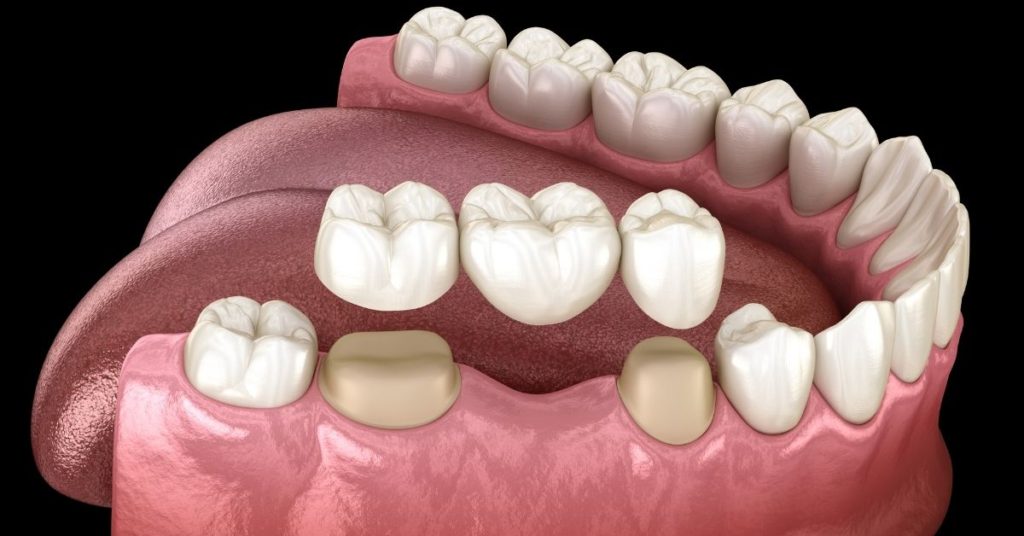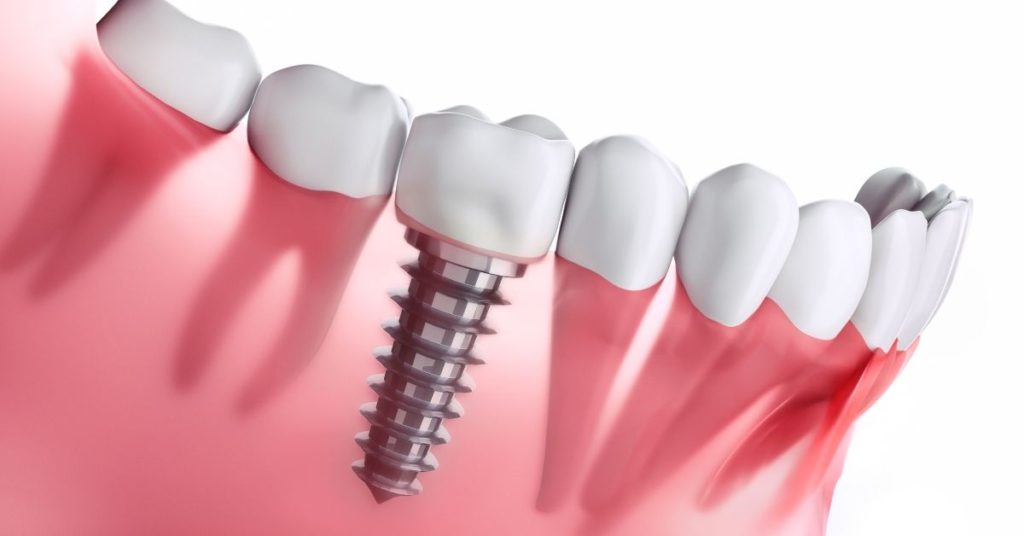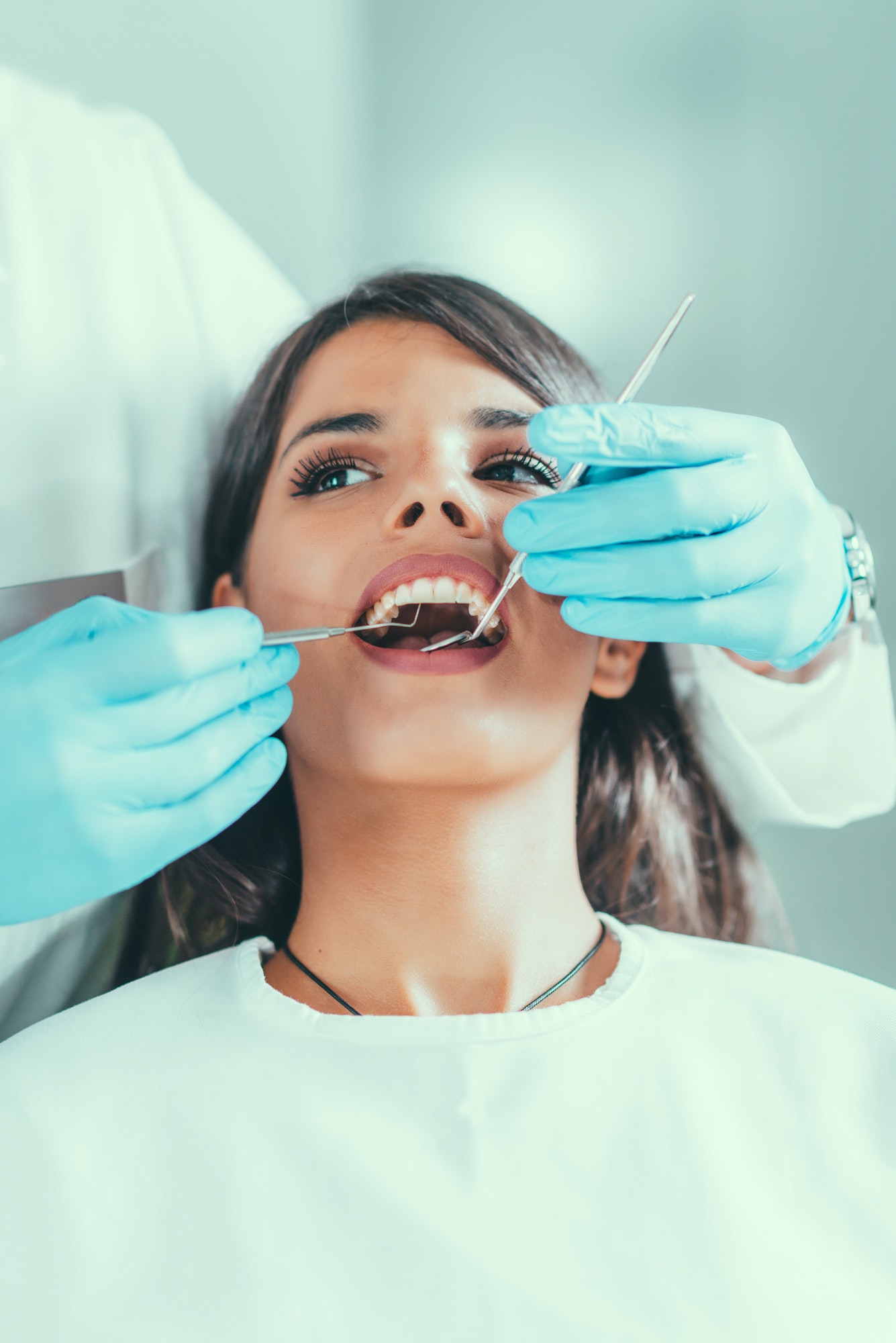- Dentistry Mosonmagyaróvár
Fixed dentures are dentures that are firmly attached to the mouth like your own teeth and can only be removed under the conditions of a doctor’s office. Their firm attachment does not move at all during chewing or speaking, so their use offers maximum comfort.
Fixed dentures include a crown or bridge that attaches to your own teeth (traditional dentures) and dental implants and an associated crown, bridge, or full denture (implant dentures).
Conventional dental prostheses such as crowns and bridges enable a large number of tooth damage and minor tooth defects to be restored quickly, aesthetically and inexpensively. Their disadvantage is the significant loss of tooth material associated with the treatment, since the teeth used for fixation have to be ground down so that the prosthesis can be perfectly inserted into the dentures. The grinding is done under local anesthesia and a temporary crown/bridge is placed on the unprotected, sensitive remaining tooth material until the dentures to be bonded are completed, so that the treatment is not particularly painful.


Implant-based dentures are the most modern and long-lasting way of restoring lost teeth. During the treatment, a fully biocompatible, root-shaped screw is inserted into the jawbone, to which the visible part of the denture above the gums, the crown, can be easily attached. Larger tooth defects can be eliminated by implanting several implants, for example by making a bridge resting on the implant abutments or a complete denture connected to it (All-on-4 system). Treatment is longer, more expensive, and can cause more pain or discomfort than traditional dentures, but implanted teeth are stronger, easier to clean, and last virtually for life. In order to fix dental implants, it is not necessary to grind down the adjacent teeth of the missing tooth, so there is no unnecessary loss of tooth material.
There are almost no people who sooner or later have to do without any kind of dentures, for example due to damage, fractures or missing teeth. Fixed fixations in the mouth are recommended for those who still have enough tooth material of their own – or without one or more implants – and want a comfortable solution that is almost identical in look and feel to the original teeth.
Larger procedures for the production of fixed dentures (e.g. tooth brushing or implantation) are carried out under local anesthesia and are therefore painless. However, pain and swelling may occur during implant placement in the days following treatment, but this is temporary. After the cleaning required for traditional dentures, the feeling of pain is atypical, since the unprotected, sensitive residual tooth material is protected from various influences by a temporary crown until the final crown is glued on.
Different options for fixed dentures differ not only in price and lifespan, but also, for example, in the type of dental problem they can heal. Taking all this into account, the appropriate fixed dentures are selected together by the dentist and patient. It should also be considered whether the patient is a suitable subject for a particular denture – for example, some serious illnesses, heavy smoking or being under 18 years of age preclude implant-based dentures.
In the case of fixed dentures, it is possible to restore only one tooth, but also several teeth at the same time or even the entire denture.

Fill out the form, click the login button, and we will contact you soon.
Dr. Bekő Gabriella
Implanmed © 2022. All rights reserved!